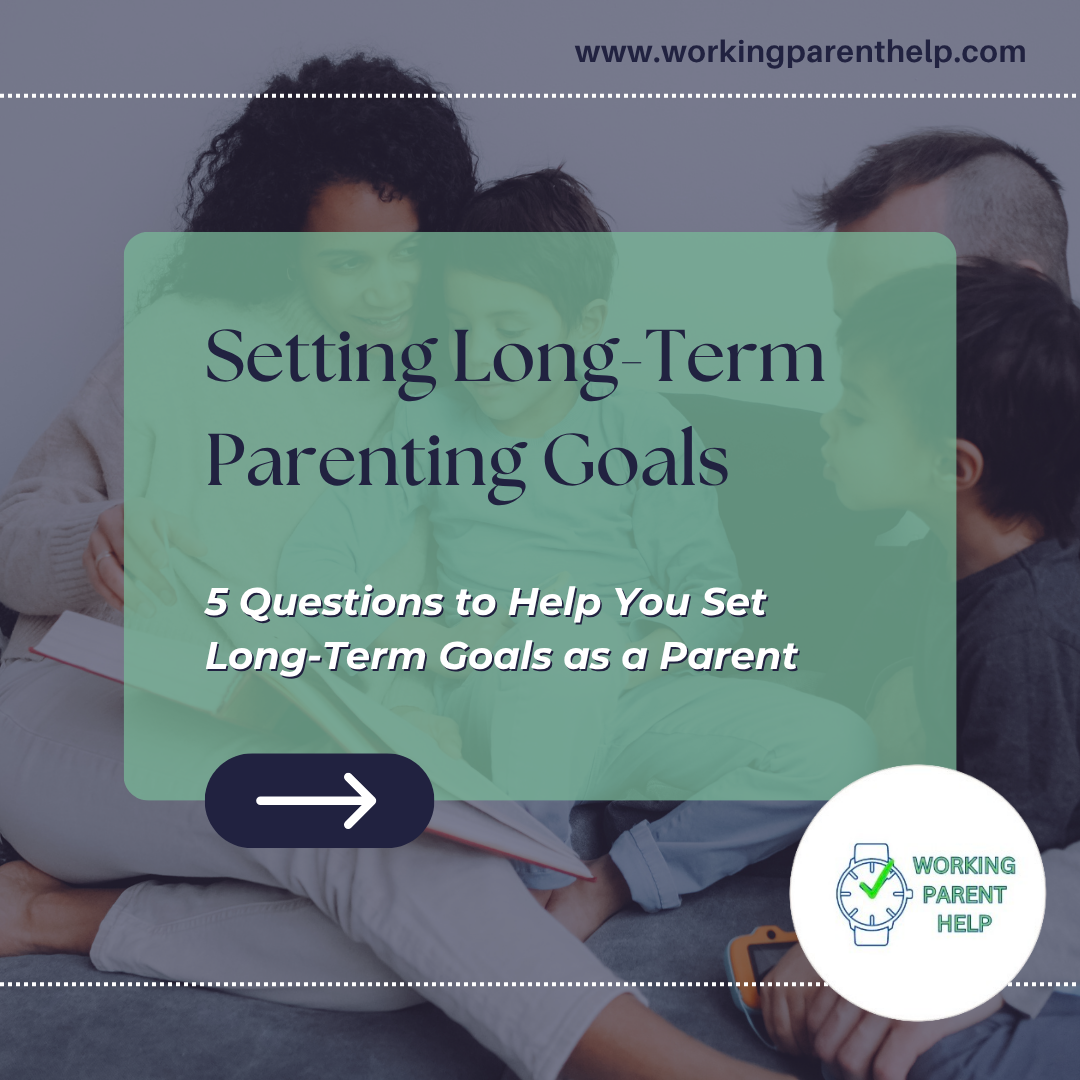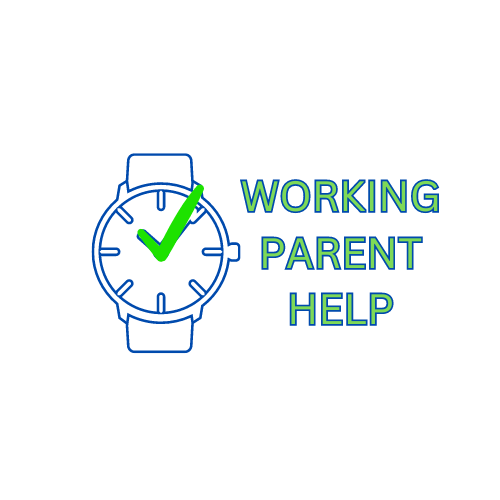
5 Questions to Help You Set Long-Term Goals as a Parent
Because raising tiny humans requires more than just snacks and screen time (though those help, too).
Parenting is a lot like running a marathon… while juggling flaming torches… on a tightrope… during a thunderstorm. Okay, maybe that’s dramatic—but it does feel like survival mode 90% of the time.
In between packing lunches, calming meltdowns, navigating after-school chaos, and trying to remember where you left your phone (hint: it’s in the fridge), it’s easy to lose sight of the bigger picture.
But taking time to set long-term goals as a parent helps you parent with intention instead of just reaction.
So here are 5 powerful questions to help you step out of the daily mess and into your long-term parenting vision—without adding pressure or guilt (because Lord knows we don’t need more of that).
1. What Kind of Adult Do I Hope My Child Becomes?
This question is your North Star. Ask yourself:
👉 “What do I hope my child is like at 25?”
Do you want them to be kind? Confident? Independent? Resilient?
Because spoiler alert: the habits, values, and attitudes they’ll carry into adulthood are being shaped right now—while you’re wiping noses, making mac & cheese, and doing dramatic readings of bedtime stories.
If you want to raise a problem-solver, you’ll let them make (and fix) mistakes.
If you want to raise a compassionate adult, you’ll model empathy—even during toddler tantrums and teen eye-rolls.
And yes, those long-term goals even shape how you pack lunches. (We see you, balancing nutrition and convenience like a champ.)
Speaking of lunches: keep things fresh and frustration-free with the ThermoBento Insulated Food Storage Box. It keeps hot food hot, cold food cold, and your peace of mind mostly intact.
2. What Core Values Do I Want to Model?
Let’s face it—our kids don’t learn what we say. They learn what we do.
And they’re watching us all the time. (Yes, even when we think they’re distracted by Cocomelon.)
Take a moment to identify the values you want to live out:
-
Do you want them to see grit? Show up for hard things.
-
Want to instill kindness? Speak gently—even when they just colored the wall.
-
Want them to believe in balance? Let them see you rest. (Yes, lying on the couch counts.)
Remember: your everyday actions are louder than a chore chart.
Even the small rituals matter. Like sitting together after school with a snack and a drink—pro tip: keep spills at bay and juice boxes stylish with the BreezeCap Modern Can Lid with Built-in Straw. Because even hydration can be intentional.
3. What Memories Do I Want Us to Have?
One day, your kids will look back and remember snippets of their childhood. So ask yourself:
👉 “What do I want them to remember?”
Will it be:
-
Weekend pancakes in PJs?
-
Dance parties in the kitchen?
-
You cheering them on at every game?
-
How they always felt safe, seen, and silly at home?
These memories are the fabric of your family’s story. They don’t have to be grand or expensive. Some of the most magical moments come from messy, real-life chaos.
So, set goals that make space for togetherness:
-
A family game night once a week
-
Annual camping trips (or couch forts if you’re indoor people)
-
Little rituals that feel like “just ours”
Because in the end, the moments matter more than milestones.
4. What Skills Do I Want My Child to Learn?
Life skills aren’t just about tying shoelaces or folding laundry (though yes please on both). We’re talking emotional intelligence, communication, self-regulation, and resourcefulness.
Think about what you want your child to know how to do by the time they leave your home:
-
Can they express emotions without exploding?
-
Can they cook a meal that doesn’t involve a microwave?
-
Can they handle disappointment without falling apart?
Set micro-goals that support those big life skills. For example:
-
Teaching them how to apologize sincerely (even when it’s awkward)
-
Letting them pack their own bag (even if they forget socks once)
-
Letting them contribute to family decisions (like picking dinner)
Every moment you coach, support, and step back is a step toward independence.
5. How Do I Want to Feel in This Journey?
Yes, this one’s about you. Because parenting isn’t just about raising good humans—it’s also about staying sane and finding joy in the process.
Ask yourself:
👉 “How do I want to feel while parenting?”
Do you want more calm? More connection? More confidence?
Then set long-term goals for yourself, too:
-
Carving out 10 minutes a day for quiet (even if it’s in the car, hiding with snacks)
-
Practicing mindfulness (or at least remembering to breathe before yelling)
-
Giving yourself grace when things go sideways (because they will)
If you aim to feel connected instead of constantly behind, it’ll influence how you show up every day.
And when you’re able to stay regulated, you teach your child how to regulate, too.
Real Talk: It’s Not About Perfect—It’s About Purpose
Setting long-term goals doesn’t mean locking yourself into rigid parenting plans. It means parenting with purpose instead of just putting out fires all day.
You don’t need to do it all. You just need to pause, reflect, and say:
“This is what matters to me. This is what I want to build.”
From there, the small choices—how you speak, how you spend time, what you model—become part of something bigger.
It’s not about perfect parenting. It’s about present parenting.
